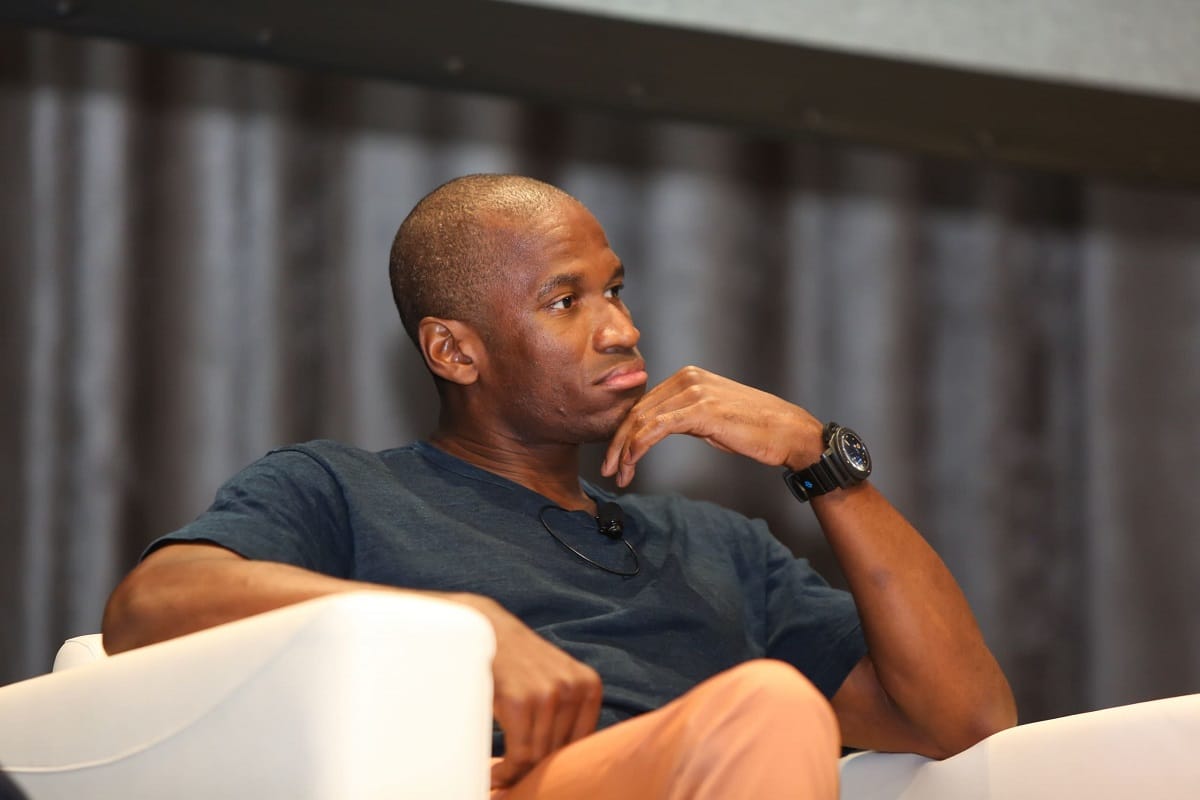Arthur Hayes, co-founder of BitMEX, is optimistic that the price of Bitcoin will jump high due to current geopolitical tensions and their impacts on the economy.
According to Hayes, war, especially in the Middle East, has a sobering impact on the US’s rush to increase government spending, which means more money printing and inflation.
Arthur Hayes Predicts Bitcoin Surge Due to War-Driven Monetary Expansion
Arthur Hayes predicts that Bitcoin will gain from monetary policies shaped by the US government’s war-related spending. He believes that the government will resort to borrowing to fund military efforts. That would likely be supported by expanding the balance sheets of the Federal Reserve and commercial banks.
This approach, driven by the need for war financing, is expected to weaken the US dollar through devaluation.
Hayes argues that such monetary expansion will lead to inflation, positioning Bitcoin as a prime beneficiary. As traditional fiat currencies lose value, he anticipates investors will seek Bitcoin to hedge against inflation. That should, according to him, drive demand and boost its price.
Still, inflation is not something to kid about. The latest US Producer Price Index-PPI data was hotter than expected, at 1.8%, against market expectations of 1.6%. This upwardly revised inflation figure is decidedly an area of concern in the market due to the recent US CPI data and its effect on BTC and other cryptos.
Arthur Hayes went further to argue how history has continuously demonstrated that, in most cases, wars involving the US have had a monetary expansion effect. He says this was a catalyst to facilitate Bitcoin’s subsequent large-scale price increase.
This also means that more dollars that find their way into circulation to pay off government debt, the more likely Bitcoin will be to be a decentralized choice. Of course this concerns only those looking for economic security during financial tumult.
War – the Catalyst for Bitcoin’s Next Bull Run
Arthur Hayes, in turn, predicts a ramp in energy prices owing to increased conflict in the Middle East, which would send Bitcoin and other cryptocurrencies higher as newly printed money floods into the market.
The references are, respectively, the energy crises of 1973, when hard assets such as gold benefited from rising inflation. Thus, Hayes expects Bitcoin, often referred to as “digital gold,” to follow a similar trend and disproportionately benefit from the economic circumstances set forth by inflationary pressures and monetary expansion.
He thinks the brewing tension between Israel and Iran would strike a great blow on the energy market if vital infrastructure, such as oil fields, were affected or the Strait of Hormuz were blocked, raising energy prices.
According to Arthur Hayes, this is when Bitcoin will go up because it will become a form of “stored energy” within financial markets. However, Hayes tempers the optimism with some caution, saying that market volatility could increase if the conflict leads to broader destabilization.
He might be right since Bitcoin’s price increased by more than 8% last week.
Bitcoin as the Only Safe Haven in a Volatile Crypto Market
He emphasizes the importance of managing risk through position sizing. He also disclosed that he has pared down some exposure to smaller cryptocurrencies during this uncertain period. Indeed, this plan will curtail some drawdowns within the crypto market during geopolitical instability.
Arthur Hayes thinks that debt-financed, spending-friendly policies would continue to fuel the long-term growth of Bitcoin. With the US government continuing military aid in Israel via the use of debt, the Fed balance sheet will expand. Hayes underscored that Bitcoin has always been able to outpace the Fed balance sheet growth by 25,000%. This effectiveness one can see in Bitcoin hedging a weak fiat currency.
Hayes said that with all the geopolitical uncertainty, Bitcoin was well-positioned. Traders, therefore, should not make impulsive decisions based on what was political happenings. He recommended focusing on personal safety first. Afterwards one should allocate capital to assets like Bitcoin that protect one against the debasement of fiat money and purchasing power in general in terms of energy costs.
Disclaimer: The presented content may include the personal opinion of the author and is subject to market condition. Do your market research before investing in cryptocurrencies. The author or the publication does not hold any responsibility for your personal financial loss.

Leave a Reply